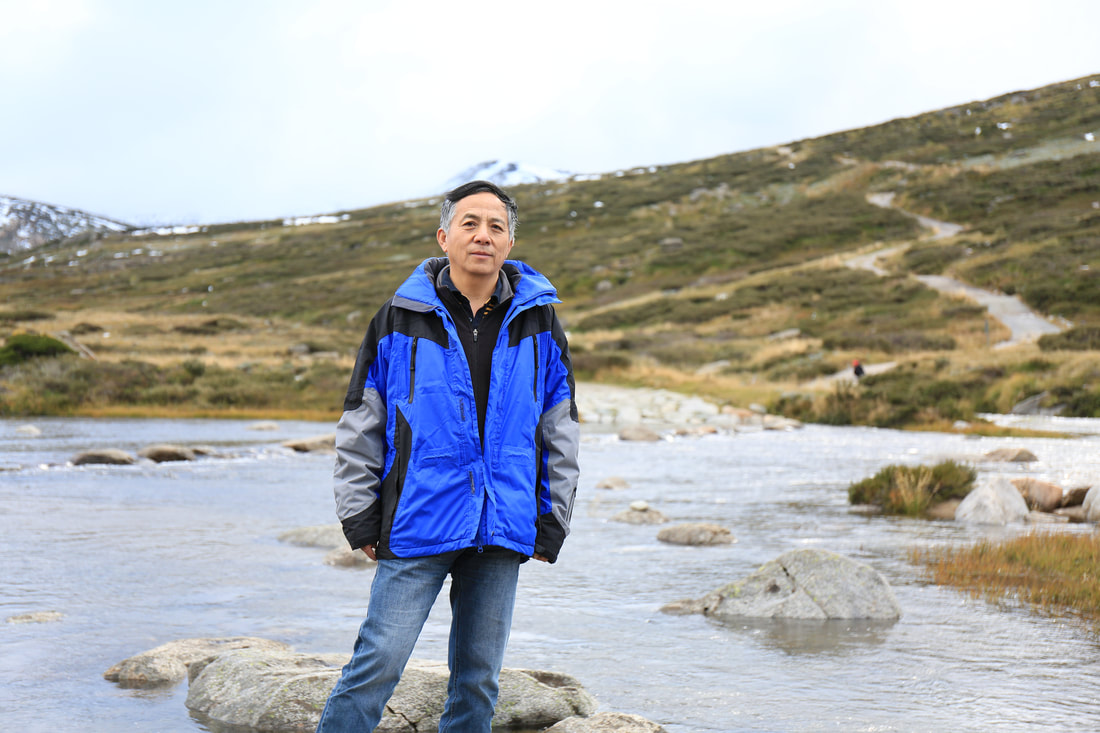I started my career in evaporation or perhaps I should say evapotranspiration, which is a key element of ecohydrology. For me, ecohydrology is a natural and logical way of looking at our catchments and it calls for integration from both physical hydrology and ecology communities. Of course, it is not simply “eco” + “hydro”. Coming from a physical hydrology background, it also means that I need to learn from our ecology colleagues regarding both fundamental ecological principles and the way they approach their problems. The challenge for ecohydrologists is to come up with a new methodology that enables us to understand the interactions and feedbacks among the hydrological and ecological processes in a truly integrated way.
What are your undergraduate and graduate degrees in?
My undergraduate degree (B.Sc.) is in physical geography from the Xinjiang University in China. My Master of Science (M.Sc.) and PhD are both in hydrology from the Free University of Brussels, Belgium.
How did you arrive at working in/thinking about ecohydrology?
When I started my post-doc research many years ago, our group was trying to understand how vegetation cover change (e.g. tress clearing or plantation forestry) could affect groundwater recharge, water yield and salinity in Australian landscapes. Many people had the idea that planting trees could increase rainfall or somehow bring higher water yields. The idea that more trees ensured a wetter environment seemed like no more than simple common sense. At the time, no suitable ecohydrological models were available that could help us to answer these questions. We started to build our first ecohydrological model WAVES (https://research.csiro.au/software/waves/) which integrates energy, water, carbon and solute balances. This was my first attempt at doing research on ecohydrology and it significantly broaden my knowledge base. My research on ecohydrology was motivated by solving real problems of major practical and environmental significance for Australian catchments.
What do you see as an important emerging area of ecohydrology?
Wow, this is a tough question and my view would be most likely biased. I think one important emerging area of ecohydrology is the coupling of carbon and water at a range of spatial and temporal scales, as this will enable us to understand and explain the patterns of ecohydrological processes and their dependence on hydrologic regimes. More specifically, for example, can we come up with a framework that can adequately simulate both carbon and water fluxes in a consistent fashion? Such a model would require identification of the “weakest link” in our understanding and the balance of process complexity and data availability. We need to take a phenomenological approach to this problem by examining available data over a range of scales to provide pertinent information on the coupled carbon-water relationships. This is a scientifically exciting field of research and it also has policy and management implications for how we manage our catchments under future climate change.
Do you have a favorite ecohydrology paper? Describe/explain.
If I had to name only one ecohydrology paper, then I would go with Newman et al. (2006) “Ecohydrology of water-limited environment: A scientific vision”. In this paper, the authors identified some key challenges for ecohydrology in dry environment and argued that we need to foster integrated interdisciplinary approaches to ecohydrology problems, a view I totally echo.
What do you do for fun (apart from ecohydrology)?
I love cycling, and I mountain bike with my daughter over the weekends- Canberra has pretty good tracks for mountain biking! When I am not working on ecohydrology, I like to listen to classical music and my favorite composers include Beethoven, Brahms, and Dvořák. I also love cooking and travelling.

 RSS Feed
RSS Feed